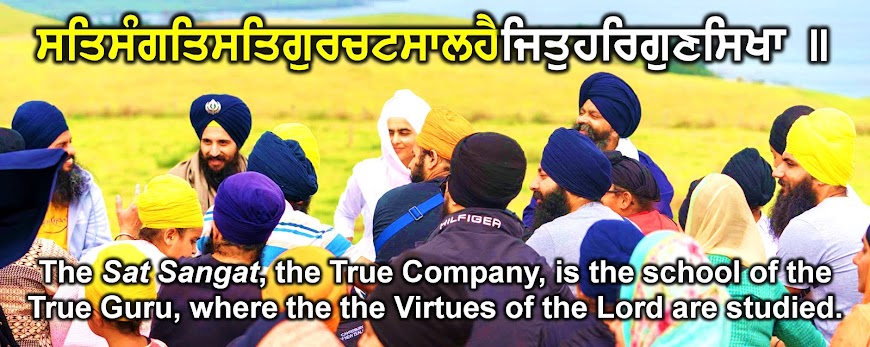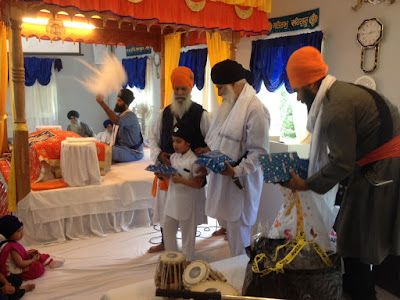Khalsa
Camp BC (Canada) took place from 26th to 31st August 2015. This was
the fifth successful year of Khalsa Camp BC. It was very impressive to see how the
camp has grown and developed over the years. The camp was well
organised and the atmosphere was inspirational! It was great to have
darshan of so many Gurmukhs this year.
This
years camp had a range of speakers which included Bhai Santbir Singh jee (Toronto), Bhai Jagjit Singh (UK), Bhai Shaminder Singh (BC), Giani Kulwinder Singh (BC), Bhenji Gurminder Kaur (BC), and Bhai Paramjit Singh Khalsa (Anandpur Sahib wale). Bhai Davinder Singh (California) also attended and held workshops.
I found the whole camp
amazing! Great atmosphere, great Gursikh speakers, and great Sangat. The
most memorable thing about the camp was the mosquitos and being bitten
over and over again and being swamped by mosquitos! Vaheguru!
The camp left a
very positive impression on my mind and I found it very uplifting and
beneficial. May Guru Sahib continue to bless the Sangat and may their
flourish in Gursikhi.
Orientation
Divaan
Keertan
Ice-breaker
Langar Seva
Bhai Santbir Singh workshop
Bhenji Gurminder Kaur did an amazing talk!
Evening Questions and Answers session
Gatka by Veer Harman Singh

Gatka

Gatka

Talk by Bhai Shaminder Singh
In the workshop we were lucky enough to have Bhai Prabhsimran Singh, a white-Canadian Gursikh share his experiences of how he becoming an Amritdhari Singh.
Calligraphy workshop
Calligraphy workshop
Workshop with Bhai Jagjit Singh
Workshop with Bhai Davinder Singh
Bhai Harveen Singh was previously from UK and is currently living in BC
Bhai Paramjit Singh Khalsa
Giani Kulwinder Singh's talk on Gurbani
Keertan
Campers doing Satguru Ji's seva
Deg Seva
End of camp closing comments
A lovely Gursikh that I share the week with at Khalsa Camp BC - Baba Harbans Singh Ji. Baba Ji had so much knowledge and wisdom and deep reflections on Gurbani, yet so much humility and also lots of humour. Vaheguru!
Bus journey back home from camp
Group photo on arrival back from camp


















































